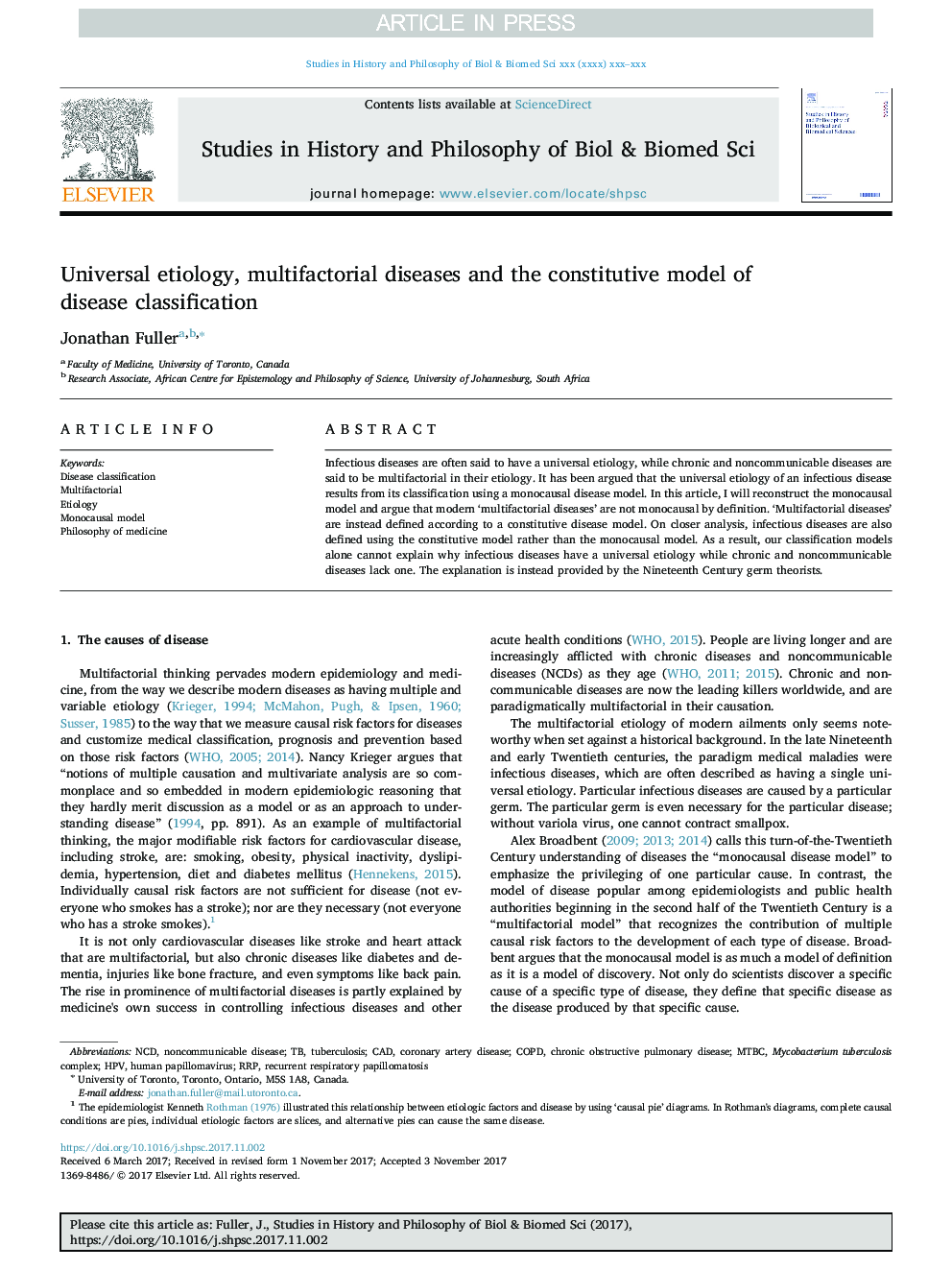| Article ID | Journal | Published Year | Pages | File Type |
|---|---|---|---|---|
| 7552066 | Studies in History and Philosophy of Science Part C: Studies in History and Philosophy of Biological and Biomedical Sciences | 2018 | 8 Pages |
Abstract
Infectious diseases are often said to have a universal etiology, while chronic and noncommunicable diseases are said to be multifactorial in their etiology. It has been argued that the universal etiology of an infectious disease results from its classification using a monocausal disease model. In this article, I will reconstruct the monocausal model and argue that modern 'multifactorial diseases' are not monocausal by definition. 'Multifactorial diseases' are instead defined according to a constitutive disease model. On closer analysis, infectious diseases are also defined using the constitutive model rather than the monocausal model. As a result, our classification models alone cannot explain why infectious diseases have a universal etiology while chronic and noncommunicable diseases lack one. The explanation is instead provided by the Nineteenth Century germ theorists.
Keywords
Related Topics
Life Sciences
Agricultural and Biological Sciences
Agricultural and Biological Sciences (General)
Authors
Jonathan Fuller,
